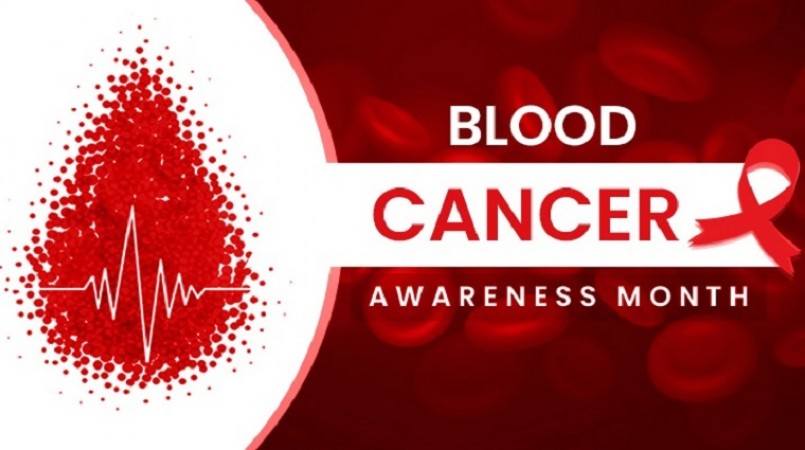
Childhood Blood Cancer Awareness Month, September: Cancer is a formidable adversary, a relentless foe that knows no age or boundaries. When we think of cancer, our minds often drift to adult populations, yet it's crucial to recognize that cancer can also afflict children. Childhood cancer, although relatively rare compared to adult cases, is a harsh reality for many families. In September, we observe Childhood Blood Cancer Awareness Month, a time to shed light on this often misunderstood aspect of the disease. To effectively combat childhood blood cancer, we must confront and dispel common myths that hinder awareness, treatment, and the overall well-being of affected children.
Childhood Blood Cancer is Contagious:
One pervasive myth surrounding childhood blood cancer is the belief that it is contagious. This notion creates fear and stigma, leading to unnecessary isolation and discrimination against affected children. In reality, childhood blood cancers like leukemia and lymphoma are not contagious in any way. They are not caused by viruses, bacteria, or any form of direct human contact. Instead, these cancers arise from genetic mutations or other factors that trigger abnormal cell growth within the blood and bone marrow. Understanding that these diseases are not contagious is vital to combating the unwarranted fear that can surround them.
Childhood Blood Cancer is Caused by a Specific Diet or Lifestyle:
Another misconception that often circulates is the idea that childhood blood cancer is linked to a specific diet or lifestyle. While a healthy diet and lifestyle are essential for overall well-being and can contribute to a person's general health, they do not directly cause or prevent blood cancers. These cancers typically occur due to mutations in the DNA of blood cells, which can happen regardless of one's dietary choices or lifestyle habits. Blaming a child's illness on their diet or lifestyle not only perpetuates false beliefs but also adds undue guilt to the burden already carried by the affected child and their family.
Childhood Blood Cancer can be Cured with Alternative Treatments or Home Remedies:
In today's era of information abundance, it's common for people to seek alternative treatments or home remedies for various ailments. However, when it comes to childhood blood cancer, this myth can be perilous. The truth is that evidence-based medical interventions are the primary means of treating childhood blood cancer effectively. These treatments often involve chemotherapy, radiation therapy, and in some cases, bone marrow or stem cell transplantation. Relying solely on alternative treatments or home remedies can delay proper medical care and jeopardize a child's chances of recovery. It is essential that families trust qualified medical professionals for their child's treatment.
Childhood Blood Cancer Only Affects Older Children
Many people wrongly believe that childhood blood cancer only affects older children or teenagers. While certain types of blood cancers may be more prevalent in specific age groups, the reality is that these diseases can strike children of all ages, from infants to teenagers. The key to successful treatment and recovery is early diagnosis, which can occur at any stage of childhood. Being aware of the potential risks and symptoms associated with childhood blood cancer is critical for prompt intervention and improving outcomes for all affected children.
Childhood Blood Cancer is Always Painful
The misconception that childhood blood cancer is always accompanied by severe pain is both inaccurate and damaging. While some children with blood cancer may experience pain, it is not a universal symptom. The manifestation of symptoms and the overall experience can vary widely depending on the type and stage of the cancer. Some children may endure pain as a side effect of treatment, while others may not experience significant discomfort at all. It's essential to understand that the experience of childhood blood cancer is multifaceted, and not all cases involve excruciating pain.
Raising Awareness and Dispelling Myths
Childhood Blood Cancer Awareness Month serves as a vital opportunity to debunk these common myths and raise awareness about childhood cancer. The prevalence of these misconceptions can hinder early diagnosis, delay treatment, and negatively impact the emotional well-being of affected children and their families. To combat these myths effectively, it is essential to disseminate accurate information through various channels, including schools, healthcare facilities, and the media.
Additionally, sharing personal stories of children and families who have faced childhood blood cancer can humanize the issue, making it more relatable and less frightening for the public. When we hear about the resilience and strength of young cancer survivors and the unwavering support of their families, it becomes evident that these children are not defined by their illness but by their courage and determination.
Moreover, engaging with healthcare professionals, support groups, and organizations dedicated to childhood cancer can provide valuable insights and resources for families facing this challenge. These groups often offer a wealth of information, emotional support, and practical assistance that can ease the burden on families navigating the complex world of childhood blood cancer.
While childhood blood cancer remains relatively rare, it is a significant challenge for those who are affected by it. The misconceptions and myths surrounding this condition only serve to exacerbate the difficulties faced by these children and their families. Childhood Blood Cancer Awareness Month, observed in September, is a critical time to confront these myths head-on and educate the public about the realities of childhood blood cancer. By dispelling these myths, raising awareness, and fostering a supportive community, we can ensure that every child facing blood cancer receives the best possible care and the chance for a brighter future.